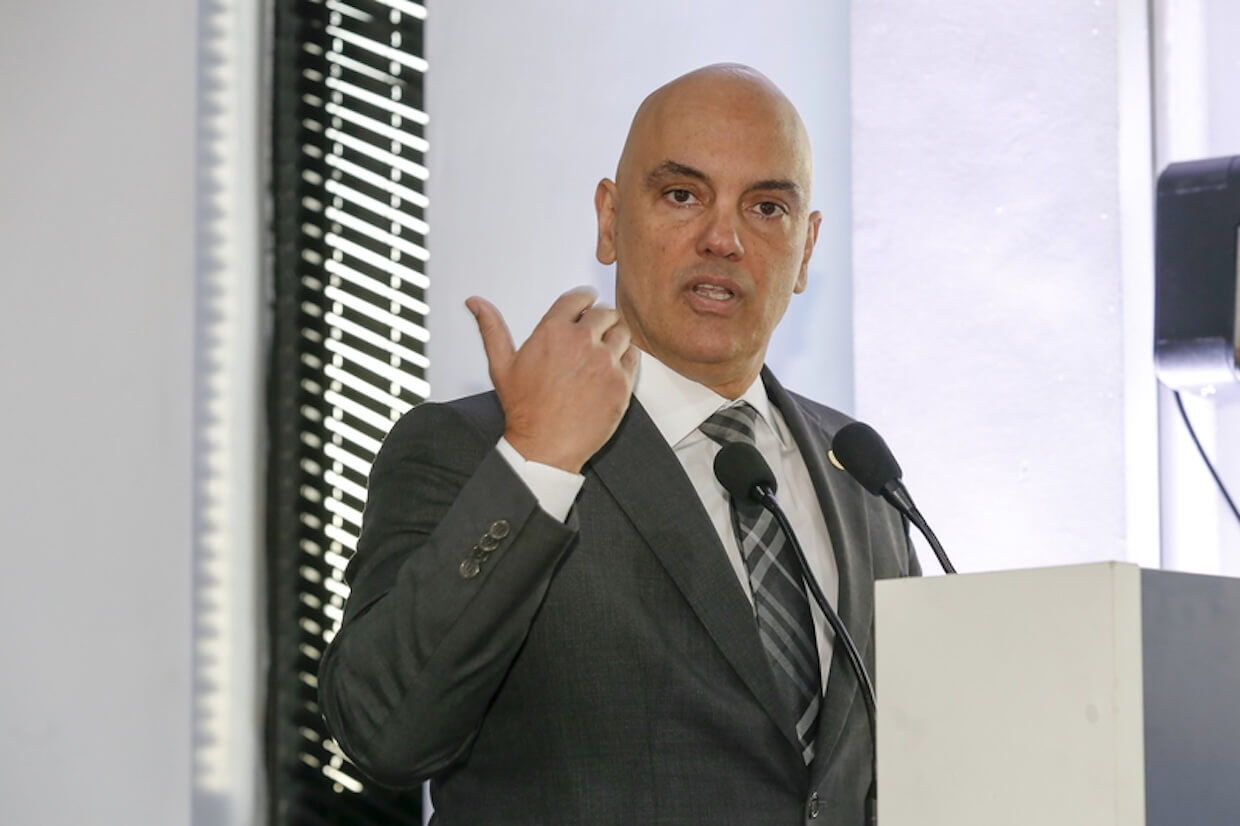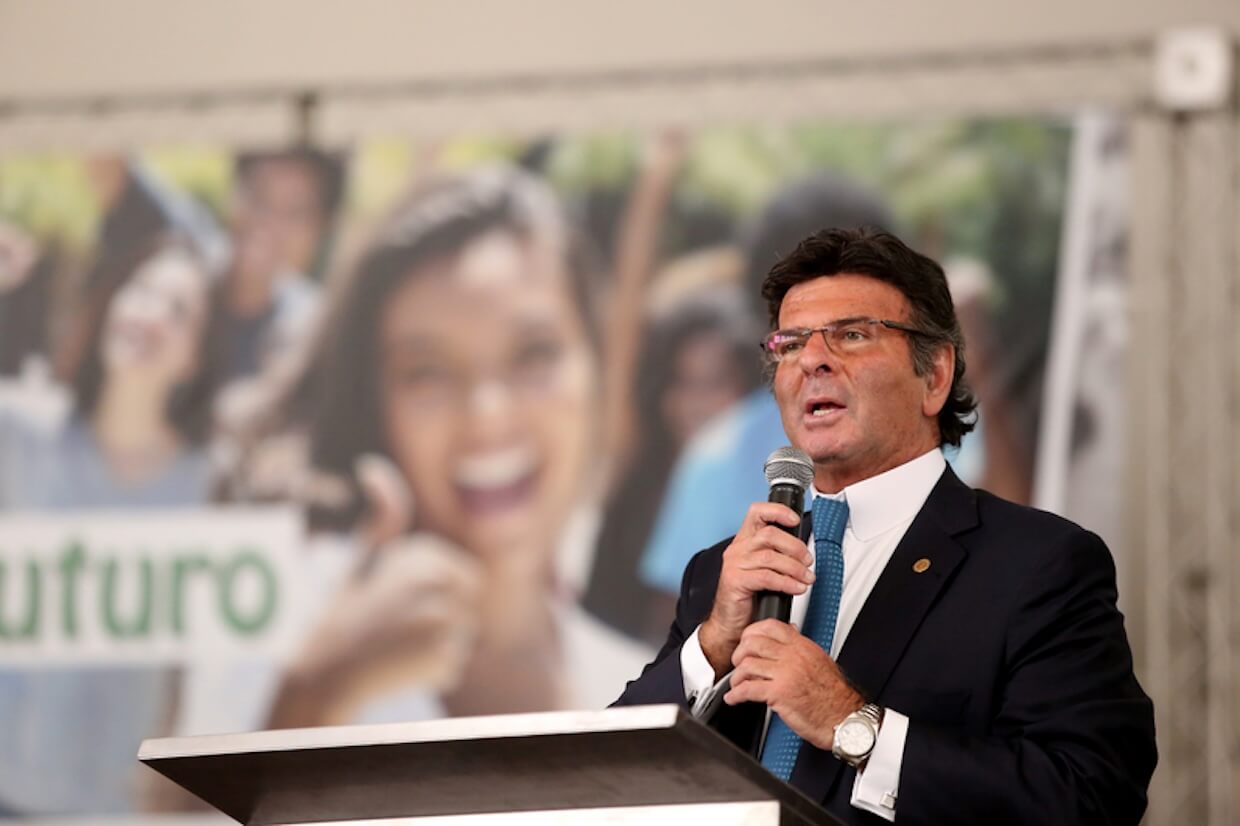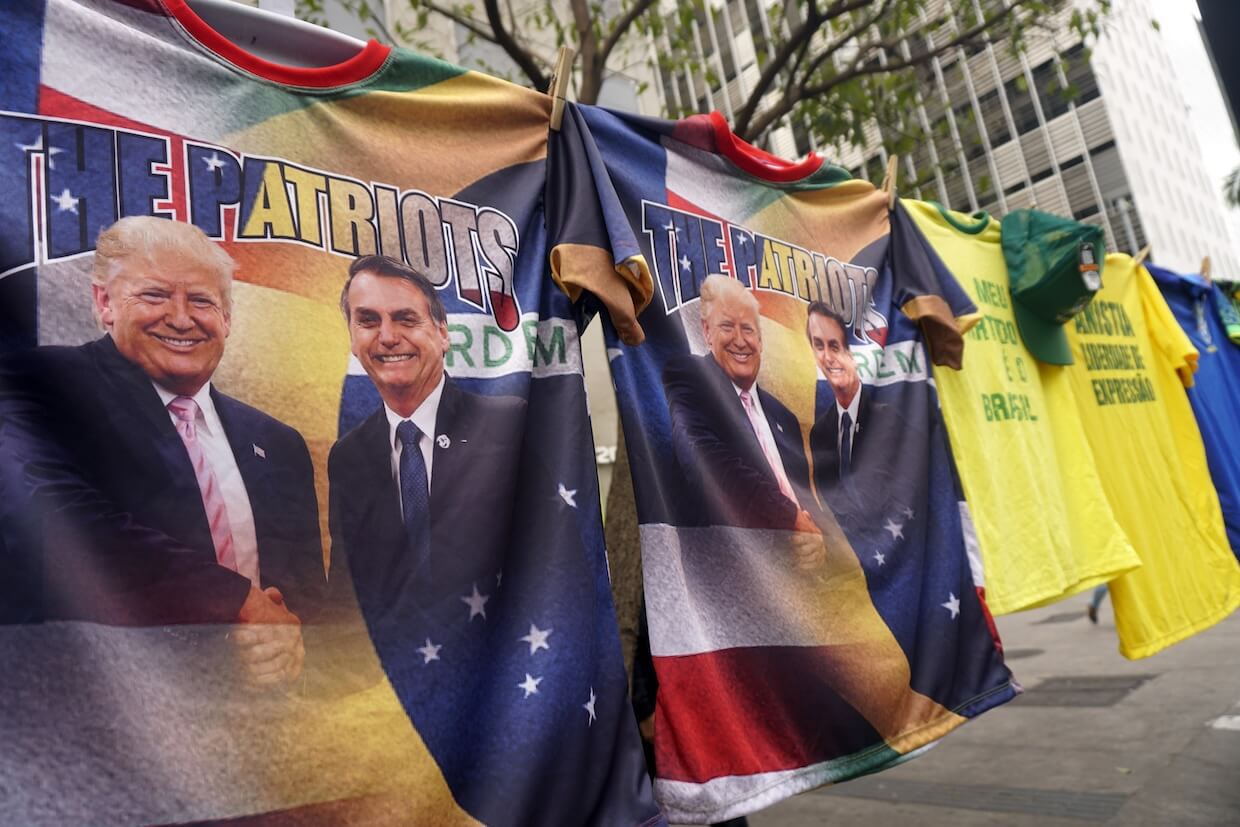The conviction of Jair Bolsonaro and senior military officers for plotting a coup marks an unprecedented moment in Brazil’s democratic history. For the first time, both a former president and high-ranking commanders have been held accountable for attempting to subvert constitutional order. In her interview with the ECPS, Dr. Tatiana Paula da Cruz calls this a “historic” cultural shift: “Brazilian society is no longer willing to tolerate such attacks on democracy.” She emphasizes that this resilience stems from institutional maturity and judicial independence. By focusing on concrete evidence rather than rhetoric, Brazil’s Supreme Court set a vital precedent: authoritarian populism meets its legal limit when courts remain credible veto players.
Interview by Selcuk Gultasli
The conviction of former Brazilian President Jair Bolsonaro and senior military officials for plotting a coup marks a watershed moment in the country’s democratic trajectory. For the first time in Brazil’s history, both a former head of state and high-ranking military leaders have been held criminally accountable for attempting to subvert constitutional order. This unprecedented development raises fundamental questions about judicial independence, civil–military relations, and the resilience of democratic institutions under populist pressure.
In a wide-ranging interview with the European Center for Populism Studies (ECPS), Dr. Tatiana Paula da Cruz—a legal scholar with a J.D. from the Federal University of Juiz de Fora, a PhD in Law from the University of Brasília, and currently a PhD student in Political Science at the University of Wisconsin-Madison—describes the moment as “historic.” As she emphasizes, “I would highlight a cultural shift. Brazilian society is no longer willing to tolerate such attacks on democracy. This makes the moment truly historic for us.”
This “cultural shift,” she argues, reflects both institutional maturation and societal change. For decades, Brazil had maintained a tradition of impunity for military elites. “When the dictatorship ended, we didn’t have transitional justice—no generals were tried, no one was convicted—and this created the perception that they were all above the law,” Dr. da Cruz explains. “Now, that has changed. We have major military players convicted, and we also have a former president convicted of attempting a coup.”
For Dr. da Cruz, this is not only about judicial assertiveness but also about broader institutional cooperation: “It wasn’t just the Supreme Court; the federal police, the federal prosecution, and the courts all worked together effectively to reach this outcome.” This inter-institutional collaboration, she suggests, has been vital in resisting authoritarian populist attempts to erode democratic checks and balances.
Yet, the trial has also exposed risks. Justice Alexandre de Moraes emerged as the central figure in Bolsonaro’s prosecution, raising concerns about over-personalization of judicial power. While Dr. da Cruz acknowledges that this could fuel narratives of “judicial dictatorship,” she maintains that the verdict will likely enhance trust: “If I were to bet, I would say this will strengthen trust in the Supreme Court… it shows the population that they can count on the Court to uphold the Constitution.”
Ultimately, Brazil’s experience highlights both the vulnerabilities and strengths of democracies confronting authoritarian populism. By focusing on hard evidence—charges of armed conspiracy and constitutional subversion—rather than rhetoric or political speech, Brazil’s Supreme Court has set a precedent of judicial accountability rooted firmly in due process. As Dr. da Cruz underscores, “There is a threshold, a limit at which society must say: this is no longer rhetoric, this is now armed conflict, this is now constitutional subversion—and this we will not accept.”
This interview situates Brazil’s democratic resilience in comparative perspective, with lessons for other democracies confronting populist threats.
Here is the transcript of our interview with Dr. Tatiana Paula da Cruz, lightly edited for clarity and readability.
A Historic Break with Brazil’s Tradition of Impunity

Dr. Tatiana Paula da Cruz, thank you very much for joining our interview series. Let me start right away with the first question: Bolsonaro has been sentenced to 27 years for plotting a coup—the first time in Brazil’s history that a president and military leaders involved in such an attempt have been convicted. How does this break with Brazil’s tradition of impunity, and what does it reveal about the maturation of its democratic institutions?
Dr. Tatiana Paula da Cruz: Thank you so much for having me. It’s such a pleasure to be here. As you just said, this is the first time something like this has happened in the history of Brazil, and it marks a huge break with the tradition of impunity. When the dictatorship ended, we didn’t have transitional justice—no generals were tried, no one was convicted—and this created the perception that they were all above the law. Now, that has changed. We have major military players convicted, and we also have a former president convicted of attempting a coup.
For me, this demonstrates two things above all. First, judicial independence: our Supreme Court has shown that it can and will enforce the Constitution whenever necessary. But perhaps even more importantly, other institutions have matured as well. It wasn’t just the Supreme Court; the federal police, the federal prosecution, and the courts all worked together effectively to reach this outcome. Finally, I would highlight a cultural shift. Brazilian society is no longer willing to tolerate such attacks on democracy. This makes the moment truly historic for us.
Legitimacy Gained, Risks Remain
Justice Alexandre de Moraes meticulously built the case for over two years, defying Bolsonaro’s claims of judicial persecution. From your perspective on judicial politics, does this verdict strengthen long-term trust in the Supreme Federal Court (STF), or risk deepening narratives of “judicial dictatorship”?
Dr. Tatiana Paula Da Cruz: This is the hard question that we are all asking right now, because it can cut both ways. If I were to bet, I would say this will strengthen trust in the Supreme Court, raising both levels of trust and legitimacy, because it is another instance of the court showing it can act under pressure. COVID was the first such instance in the recent past. During COVID, everyone in the government was against the Supreme Court’s measures, yet the Court was able to enforce the Constitution, and it has done the same now. This shows the population that they can count on the Court to uphold the Constitution.
But, there might be a second possibility. Justice Alexandre de Moraes became the face of this prosecution, the face of the inquiry and the conviction. In my opinion, this is problematic for the Court, because it personalizes such an important verdict in one person, which should not be the case. The main verdict involved other justices, of course, but he became the highly visible player in this case. This can fuel arguments of “judicial dictatorship,” which could play out negatively.
That said, if I were to bet, I think this will ultimately be positive for the Supreme Court. The population will see that the Court stands firm, even when the government is not siding with it. But we will have to wait and see.
Authoritarian Populism Meets Its Legal Limit
Bolsonaro’s conviction included charges of armed criminal conspiracy and attempted abolition of the democratic rule of law. How do these charges fit into the conceptual vocabulary of authoritarian populism—are they an appropriate legal reflection of political subversion?
Dr. Tatiana Paula Da Cruz: I think they are. For me, this is one of the most important points here, because we could have had a conviction based on opinion or public statements that Bolsonaro made. That would have risked a much more politicized trial. Instead, the court chose to focus only on the concrete facts, which were mainly about the armed conspiracy—an organized and violent attempt against important political figures such as President Lula and Justice Alexandre de Moraes. They focused on the coup plot itself. They didn’t dwell on rhetoric, social media posts, or other statements that might have raised accusations of politicization.
This goes directly to the heart of authoritarian populism. There is a threshold, a limit at which society must say: this is no longer rhetoric, this is now armed conflict, this is constitutional subversion—and this we will not accept. In that sense, the court acted appropriately by applying the criminal code in the most strictly legal way possible.
Bolsonaro and his lawyers insist the trial was politically motivated, echoing populist claims of “witch hunts.” How should scholars distinguish between legitimate judicial accountability and lawfare in cases involving populist leaders?
Dr. Tatiana Paula Da Cruz: If we can take Brazil as an example, the most important guarantee courts should focus on is due process. This is exactly what our Supreme Court did. Every time the defense asked for information or made requests, they were granted, even though there is a strong argument that trying these individuals in the highest instance of the judiciary violates the right to defense. The court, however, had several precedents showing this was not the case, and this was not the first instance in which people were tried in the Supreme Court. Due process was observed at every step. Alongside this, there was strong factual evidence and credible witnesses—in our case, even a whistleblower—that demonstrated this was not a conspiracy or a witch hunt, but a legitimate trial conducted with due process and proportionality. That is the key: showing that the law is being upheld, and that the law allows for this punishment to happen.
Dissent as Democratic Strength, Not Judicial Weakness

The STF split 4–1, with Justice Luiz Fux voting to absolve Bolsonaro on procedural grounds. Could such dissents provide legal ammunition for appeals and, more broadly, do fragmented judicial opinions undermine institutional legitimacy in high-stakes political trials?
Dr. Tatiana Paula Da Cruz: I heard a lot, and I read a lot about this during the last few weeks, and I side with the people who think that this is actually positive and beneficial for our democracy. By having a strong dissent like we had with Justice Fux, it shows that justices are allowed to think otherwise, that there was evidence, and that there were arguments from the defense that could persuade justices to think differently, and that the court is not hunting someone at any cost. So, this dissent demonstrates that the court can dissent, that it can have different arguments, and this is actually positive in a high court such as the Supreme Court.
In terms of appeals, I don’t think this is a huge problem here. We have a specific appeal that would be possible if this decision were a 3–2 decision. So if we had two justices siding with Bolsonaro, then he would have a specific appeal that would apply to this case. With only one dissent, this appeal does not apply, so the idea that it opens the ground for the defense to explore more possibilities of appeals doesn’t apply in this case specifically. In my view, the dissent was too long—it took the entire day to read the vote, and it was much more procedural than based on evidence itself—but it plays in favor of the Supreme Court. It shows that, unexpectedly, someone dissented completely on the verdict, and this demonstrates that the Supreme Court can have a debate, which is positive.
The Militarization of Bureaucracy Was a Legal Process

Your research shows Bolsonaro strategically militarized bureaucracies while eroding public trust in the Armed Forces. How does the sentencing of senior officers alter Brazil’s civil–military equilibrium, and could it delegitimize the armed forces as political actors?
Dr. Tatiana Paula Da Cruz: We have always had this problem with civilian control over the military. Since the dictatorship, when the new constitution was drafted, so much power was given to the military that we could almost never say they were not allowed to play a specific role. What I call the militarization of bureaucracy was, in fact, a legal process—and this is the problem for me. There were laws that allowed the military to occupy primarily political positions. I’m not just talking here about the Ministry of Health, where a general was appointed to a political position. That was highly problematic; we had never before seen active-duty military in such a high office, and it was questionable.
But that is not the only issue. I’m talking about positions at all levels of the political bureaucracy that the military was allowed to occupy by law. Several changes in federal legislation permitted military personnel to serve up to four or even six years outside of strictly military posts and instead take politically appointed positions. Bolsonaro knew how to exploit this in his favor. An unprecedented number of military officers occupied his bureaucracy, and this undoubtedly laid the groundwork for him to secure the support he needed when the time came.
So, in order to rebuild civilian control over the military, much more is needed than simply changing the Ministry of Defense and appointing a civilian instead of a general. What is needed is legal reform that critically examines and justifies, for example, why we would need a sergeant in the Ministry of Health, or why it would be important to place a soldier in the Ministry of Education. Do these assignments make sense? That is the most important issue right now. We should be questioning the very reasons why legislation allows people to leave military functions and assume civilian roles.
Resilience and Fractured Loyalties Coexist
Bolsonaro’s failed coup was partly foiled because top military commanders withheld support. Should this be read as evidence of institutional resilience, or as a sign of fractured loyalties within Brazil’s security establishment?
Dr. Tatiana Paula Da Cruz: I think it’s actually both. If we had the Ministry of Defense plus the three commanders in Brazil—which in the US we would call the Secretary of the Air Force, Secretary of the Army, and Secretary of the Navy—if all of them, along with the Minister of Defense, had said, no, we cannot side with this, it would have been a stronger sign of resilience. But that’s not what happened. In this trial, we had the conviction of the Minister of the Navy and the Minister of Defense. Both sided with Bolsonaro very strongly, saying, we support you, we’ll be by your side. Only the Secretary of the Army and the Secretary of the Air Force said otherwise.
So yes, it’s resilience, because two of the main players showed they don’t want to compromise or play completely political roles anymore. But it’s also fractured loyalties, because out of four, Bolsonaro still managed to get two on his side. The point here is that he could have had all of them siding with him, had he chosen the right commanders, so to speak. So this is resilience, but it is also fractured loyalty—and that’s the problem. If loyalties fracture, the outcome could be very different, and that’s what we don’t want. We want an institution that no longer sides with political groups at any cost.
Military Must Stay in Military Roles
Having served as a legal advisor in the Air Force, how do you assess the prospects of rebuilding robust civilian control in the defense sector after this episode of politicization and militarization?
Dr. Tatiana Paula Da Cruz: I guess I will repeat myself a little bit, because from my experience, what I see is that there is a legal foundation—federal rules that allow the military to serve outside of strictly military positions. This means they can serve basically anywhere, as you can imagine. You can have a military officer in the Ministry of Education, or a soldier in the Ministry of Construction or Agriculture, in specific cases. For me, this is what takes control over the military out of the hands of civilians. The military should be serving in essentially military positions.
We could question, for example, why we have military officers serving in a superior military court. Some may think they are needed there, that they can provide an important perspective in those cases, but we should have a civilian structure capable of handling anything that is not entirely military. That civilian structure becomes fractured when you allow the military to leave the barracks, leave their military functions, and take on civilian posts. During Bolsonaro’s government, we had military personnel spread across virtually every civilian and public position you could imagine, and this, in my view, is the biggest problem with civilian control.
As I said, this is about much more than simply changing the Minister of Defense and placing a civilian in charge. What we need is legal reform—legislation that clearly defines when, if ever, the military can leave their military functions for civilian roles. In my view, this is what should not be happening.
Crisis Moments Can Reinforce Judicial Trust
In your article on courts and democracy, you highlight how crises can paradoxically bolster judicial trust. Do you see Bolsonaro’s conviction producing a similar “crisis effect,” strengthening institutional legitimacy, or will it reinforce distrust among his base?
Dr. Tatiana Paula Da Cruz: That’s precisely correct. In my article, I analyzed this crisis effect during COVID. When the federal government opposed vaccination and isolation measures, the court said “no.” It emphasized the need to give autonomy to municipalities and states so they could decide on their own isolation measures—something Bolsonaro was completely against. In that moment, the court upheld the Constitution, even though this meant going against the president of Brazil during a crisis. This proved positive for the court, as the population sided with it for defending constitutional principles.
I think this could be precisely the case here. Right now, the population can—and, if I’m correct, will—recognize that even under strong pressure against the verdict, the court relied on constitutional guarantees to rule and to uphold the Constitution, despite street protests and pressure from Bolsonaro’s side. So, this crisis effect may well be unfolding again in the near future.
Bolsonaro’s Son Fueled Misinformation in the US

Trump has denounced Bolsonaro’s conviction, raised tariffs, and framed the trial as a parallel to his own legal troubles. How might this US intervention reshape Brazil’s democratic trajectory, and what does it reveal about transnational populist solidarity?
Dr. Tatiana Paula Da Cruz: I’m not a specialist in American politics—I work mostly on Brazilian politics. Here is my personal opinion: there is a transnational solidarity among leaders who face similar situations, but in this specific case, there was enormous pressure from one of Bolsonaro’s sons, a federal deputy who now lives in the US. He was feeding false information to the US government, and because of this misinformation and the pressure to side with Bolsonaro, I think that was the main reason for the outcome—raising tariffs, public speeches against the Supreme Court in Brazil, punishing Supreme Court judges by revoking visas, etc. This congressman, who is irregular—not completing his functions in Congress and living in the US—was the major player in this huge mess surrounding the verdict.
Courts Must Remain Veto Players Against Populism
From a comparative perspective, what lessons does Brazil’s trial of a former president and generals offer for other democracies facing populist challenges, such as the US, Israel, Turkey, or Hungary?
Dr. Tatiana Paula Da Cruz: The best comparison we can make here is between Brazil, Turkey, and Hungary—I would add Israel as well, given the major reformulation of its judicial system. In those cases, the failure was in guaranteeing that the main body overseeing the Constitution had the independence it needed to do its job. When a populist comes and gradually cuts every possible check the court can exercise over the executive, step by step, by the time you need the court to act, it cannot do so anymore because it is no longer powerful, no longer a veto player. That is what happened in those three cases.
In Brazil, whenever Bolsonaro tried to impeach a judge or push measures that would curb the court, the court showed clearly that this was unconstitutional, not allowed, and it was able to rally popular support against such moves. In this way, the court managed to remain legitimate, even under heavy pressure. In the other countries, however, the curbing was gradual and consistent, to the point where it could no longer be reversed. And when the court was finally needed, it was no longer truly operational.
Brazil Shows How Judicial Independence Can Resist Populism
Bolsonaro’s rhetoric mirrors Trump’s in portraying judicial accountability as elite persecution. Do you see Brazil’s case as a model of democratic resilience, or does it risk setting a precedent where judicial overreach becomes a populist rallying cry?
Dr. Tatiana Paula Da Cruz: This is a question I don’t really have a clear answer for right now, because it will take time for us to understand. What I can say is that internationally, public attention has portrayed Brazil as doing what the US could not do, what the US Supreme Court could not do—that Brazil is a sign, an example of resilience. The main reason for this resilience, I will repeat myself, is that we were able to keep judicial independence throughout Bolsonaro’s tenure. He was not able to change the court in the way he intended, so the court remained independent. This is what we want to show to the world. We had a populist leader who tried attacking the court, but the court survived, and it was able to uphold the Constitution against him shortly thereafter. This is the precedent we want to set. Whether this will create a perception of, or a cry of, judicial overreach is too soon to say. It certainly can, and it probably will, but will that be stronger than the claim that the court was strong? I don’t think so.
And lastly, Dr. Da Cruz, in the US, Trump floated deploying the National Guard in major cities under the guise of “law and order.” From your research on Brazil’s bureaucratic militarization, what hidden agenda do you see behind such proposals—are they about restoring order, or normalizing military involvement in domestic politics?
Dr. Tatiana Paula Da Cruz: I’m not an expert in American politics, so what I can say is about what happened in Brazil. The moment we saw those numbers of military bureaucratization growing was during the federal intervention in Rio de Janeiro. From that intervention, the military received control over the police in Rio de Janeiro because of claims of drugs and crime, etc. That was something we could not stop anymore. Years later came Bolsonaro and his Minister of Defense, who had once been “the interventor” in Rio de Janeiro, so every military politician traces back to this intervention in the police in Rio de Janeiro that happened years before Bolsonaro’s tenure. When we decided to do this, it backfired against our democracy. So, this is what I can say: it is very problematic when you bring the military into issues and problems that are not meant for the military to handle.


